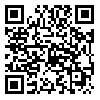Volume 3, Issue 4 (12-2019)
EBHPME 2019, 3(4): 259-265 |
Back to browse issues page
Health Management and Economics Research Center, Iran University of Medical Sciences, Tehran, Iran , elaheaskarzade@gmail.com
Abstract: (2416 Views)
Background: Providing financial resources for health services is the responsibility of the government, insurers and direct payments of individuals. Considering that health services are one of the most essential people's needsand impose a high cost on individuals, and may create catastrophic health costs for poor people. Therefore, the present study was conducted with the aim of analyzing the effect of health system evolution (HSE) program on out-of-pocket (OOP) payment in hospitals affiliated to Mashhad University of Medical Sciences.
Methods: This descriptive-analytic study was conducted in 24 hospitals of Mashhad University of Medical Sciences from 2013 to 2017 in order to survey the effect of HSE Program. The sample of this study included all patients with basic insurance referring to hospitals. Data were collected based on a researcher-made checklist for urban and rural patients. The statistical analysis software SPSS19 was used to analyze the data.
Results: According to the research findings, the total OOP payment percentage fell from about 20 % to 8 % at the end of the year. The percentage of the patient's spending on consumer use declined from 60 % to 6 %, for drugs from 30 % to 5.5 %, for services from 12 % to 4 %.
Conclusion: Increasing people's financial access to health care will improve the health of the community, which is expected to improve community health indicators by lowering their OOP payments. The continuation of OOP payments reduces the need for macroeconomic policies and sustainable budgets.
Methods: This descriptive-analytic study was conducted in 24 hospitals of Mashhad University of Medical Sciences from 2013 to 2017 in order to survey the effect of HSE Program. The sample of this study included all patients with basic insurance referring to hospitals. Data were collected based on a researcher-made checklist for urban and rural patients. The statistical analysis software SPSS19 was used to analyze the data.
Results: According to the research findings, the total OOP payment percentage fell from about 20 % to 8 % at the end of the year. The percentage of the patient's spending on consumer use declined from 60 % to 6 %, for drugs from 30 % to 5.5 %, for services from 12 % to 4 %.
Conclusion: Increasing people's financial access to health care will improve the health of the community, which is expected to improve community health indicators by lowering their OOP payments. The continuation of OOP payments reduces the need for macroeconomic policies and sustainable budgets.
Type of Study: Original article |
Subject:
Health Policy
Received: 2019/03/18 | Accepted: 2020/09/22 | Published: 2019/12/19
Received: 2019/03/18 | Accepted: 2020/09/22 | Published: 2019/12/19
| Rights and permissions | |
 |
This work is licensed under a Creative Commons Attribution-NonCommercial 4.0 International License. |




